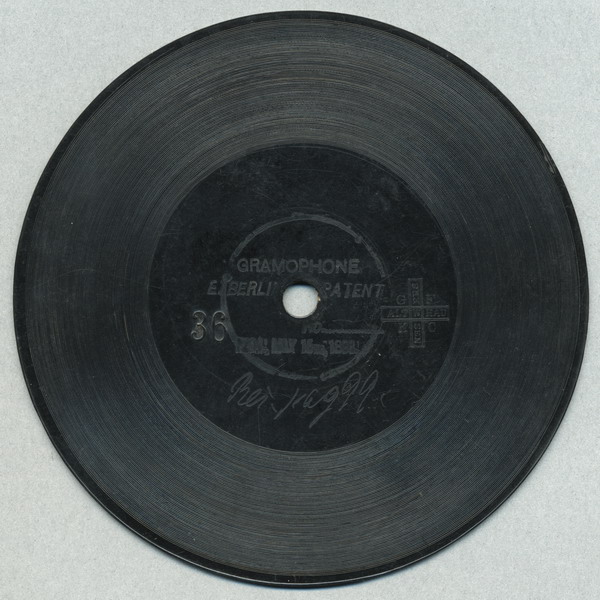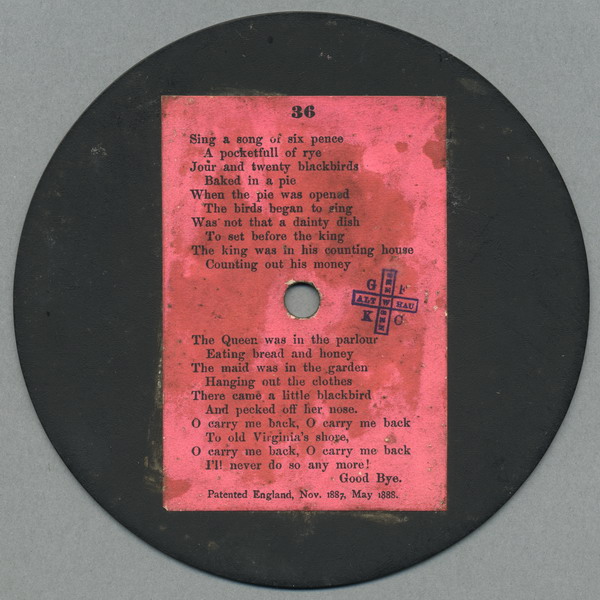

|
|
|||
|
Retour à la page d'accueil des disques Berliner Gramophone de 12,5 cm |
|||
|
|
|||
Le catalogue en ligne des disques Berliner Gramophone de 12,5 cm
The Gramophone five inch Berliner records online catalogue
SING A SONG OF SIX PENCE


To listen (fragment)
Berliner 5 inch record #36
Sing a song of sixpence
Sing a song of sixpence,
a pocket full of rye.
Four and twenty blackbirds,
baked in a pie.When the pie was opened,
the birds began to sing.
Now, wasn't that a dainty dish
to set before the king?The king was in his counting house,
counting out his money.
The queen was in the parlour,
eating bread and honey.The maid was in the garden,
hanging out the clothes,
When down came a blackbird
and pecked off her nose!Sing a Song of Sixpence is a well known English nursery rhyme, coming at least from the 18th century.
The above text comes from and is more detailed on : http://en.wikipedia.org/wiki/Sing_a_Song_of_SixpenceThe rhyme's origins are uncertain; two main competing theories circulating on the Internet are:
1. It first appeared in Volume II of Tom Thumb's Pretty Song Book, published around 1744, and almost certainly is older than that.
2. It was written, perhaps by the literary critic George Stevens, to satirize the poetry of Henry James Pye, the British Poet Laureate from 1790-1813. Certainly Byron plays on the rhyme in the scornful Dedication of his Don Juan to the next Laureate, Robert Southey.The Straight Dope in its analysis of the rhyme states:
according to the Oxford Dictionary of Nursery Rhymes, an Italian cookbook from 1549 (translated into English in 1598) actually contains a recipe "to make pies so that birds may be alive in them and flie out when it is cut up." The ODNR also cites a 1723 cook who describes this as an earlier practice, the idea being that the birds cause "a diverting Hurley-Burley amongst the Guests."The wedding of Marie de Medici and Henri IV of France in 1600 contains some interesting parallels. "The first surprise, though, came shortly before the starter - when the guests sat down, unfolded their napkins and saw songbirds fly out. The highlight of the meal was sherbets of milk and honey, which were created by Buontalenti."[6]
The rhyme may be a reference to pie birds (a culinary device), but it is uncertain whether these were actually well-known at the time the rhyme originated. Conversely, if the rhyme came first, it may have caused the naming and common design of the pie birds.
Agatha Christie's 1953 Miss Marple mystery A Pocket Full of Rye features the rhyme. Elvis Costello's song Pills and Soap is based on the rhyme, including some verses of the song.